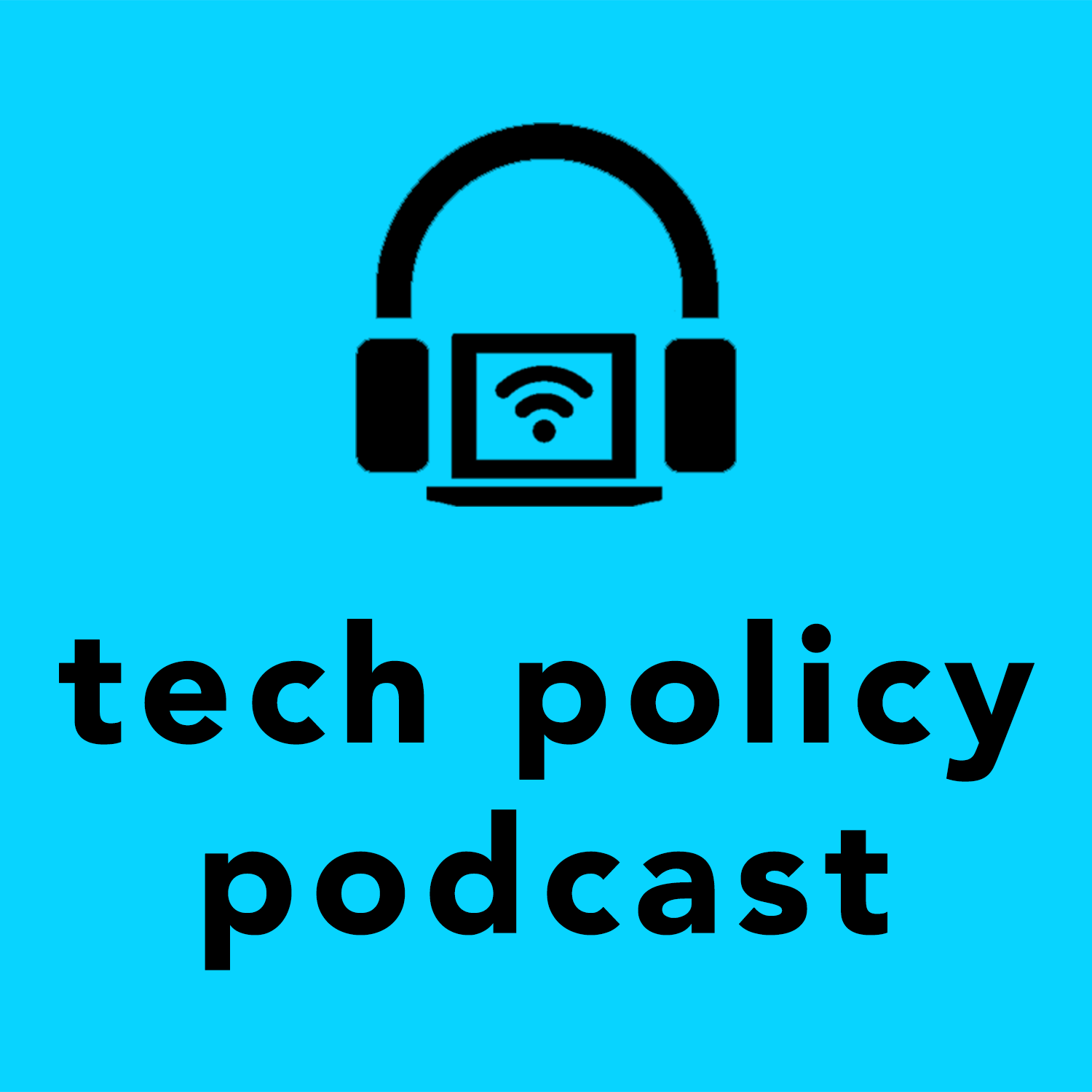Episodes
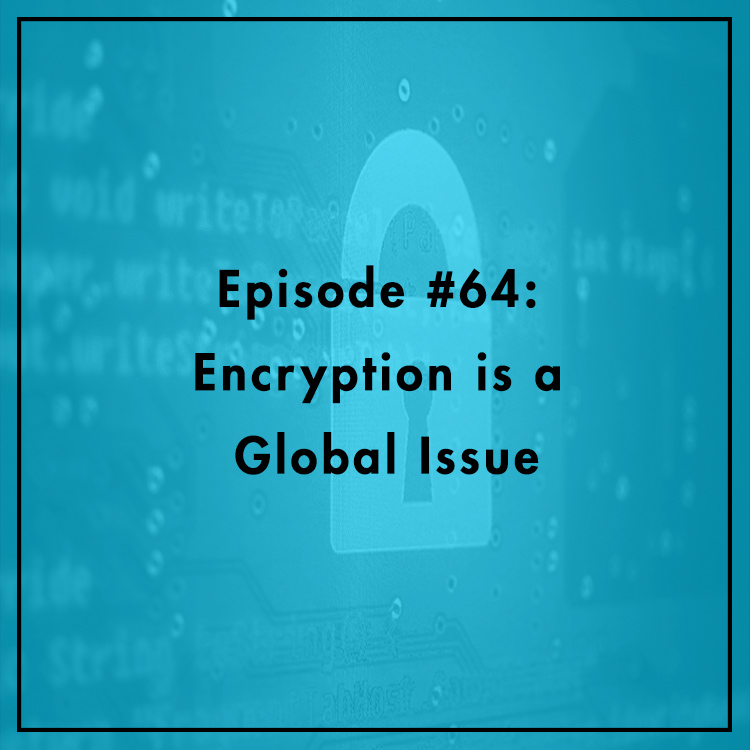
Tuesday Apr 19, 2016
#64: Encryption is a Global Issue
Tuesday Apr 19, 2016
Tuesday Apr 19, 2016
When the encryption debate is so often framed as “Apple v. FBI,” it’s easy to forget that digital security is a global issue. Nonetheless, how the United States decides to handle the issue will have an outsized impact on the rest of the world. Evan is joined by Amie Stepanovich, US policy manager at Access Now, an international civil society group dedicated to human rights in technology. She argues that we need global leadership on encryption, starting with the White House. What does President Obama think about encryption? How are other nations reacting to issues of digital security? For more, check out https://securetheinternet.org/.

Monday Apr 18, 2016
#63: Special Prices for Business Broadband
Monday Apr 18, 2016
Monday Apr 18, 2016
While the FCC chooses not to regulate the prices that consumers pay for residential broadband — for now — the same isn’t true for businesses. Special access services are dedicated connections used by businesses to transmit voice and data. The FCC regulates the price of special access lines to ensure they’re provided at “reasonable” rates and terms and conditions. The Commission is looking at updating these regulations, and a new study from Hal Singer, Senior Fellow at GW Institute for Public Policy, warns that the new rules could depress investment in fiber technology. Evan and Singer discuss the study, whether the FCC should be in the rate-regulation business, and what this all means for consumers.
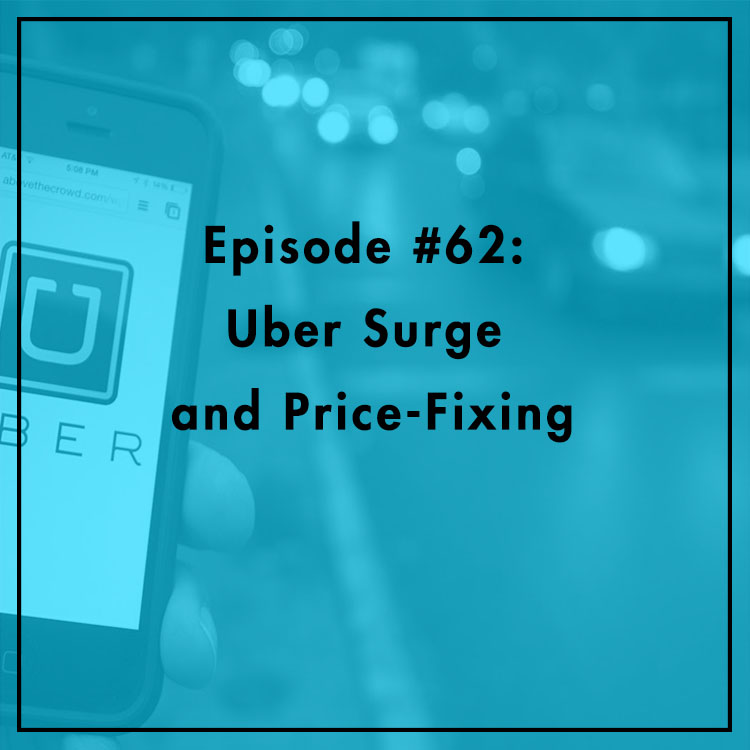
Friday Apr 15, 2016
#62: Uber Surge and Price-Fixing
Friday Apr 15, 2016
Friday Apr 15, 2016
Uber’s surge pricing has come under fire — and not just from drunk passengers who paid exorbitant fares for rides home on New Years’ Eve. A new lawsuit alleges that Uber CEO Travis Kalanick and anyone who signs up to drive for Uber is party to an illegal conspiracy to fix prices. Is surge pricing just a reflection of supply and demand and economics 101? Or is it something nefarious. Jared Meyer, a research fellow at the Manhattan Institute joins the show to discuss. For more, see his article in Reason.
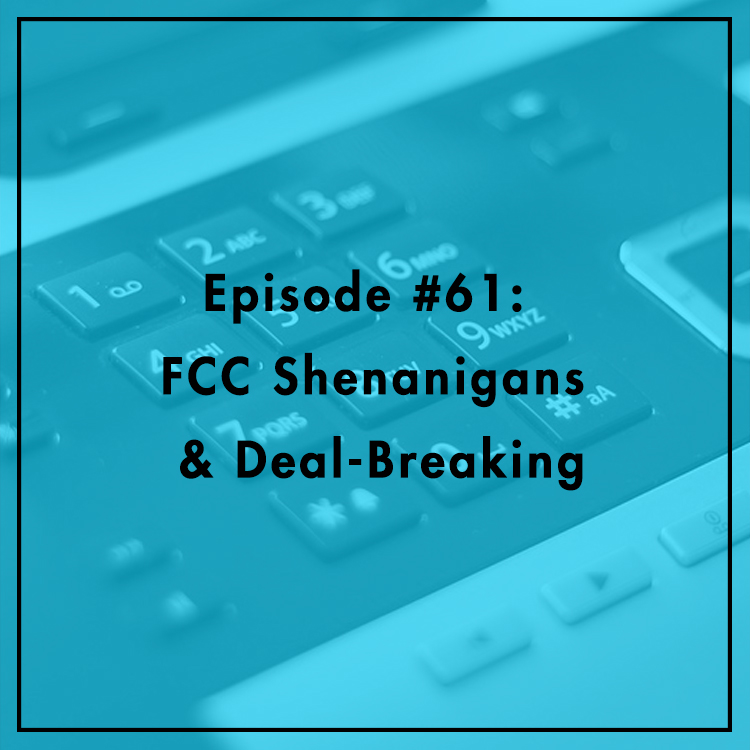
Thursday Apr 14, 2016
#61: FCC Shenanigans and Deal-Breaking
Thursday Apr 14, 2016
Thursday Apr 14, 2016
Before the last FCC monthly meeting, GOP Commissioners Pai and O’Rielly (previous guests of the show) struck a deal with Democrat Commissioner Mignon Clyburn on Lifeline. The Universal Service program subsidizes access to communications services for low-income Americans. This rare moment of bipartisanship at the politicized FCC would have extended Lifeline to cover broadband while capping its budget and rooting out fraud and abuse that have long plagued the program. At the 11th hour, Chairman Tom Wheeler pressured Commissioner Clyburn to renege on the deal and rammed through his own proposal on a 3-2 party line vote. What happened behind the scenes? Matthew Berry, Chief of Staff to Commissioner Pai, joins to show to discuss.
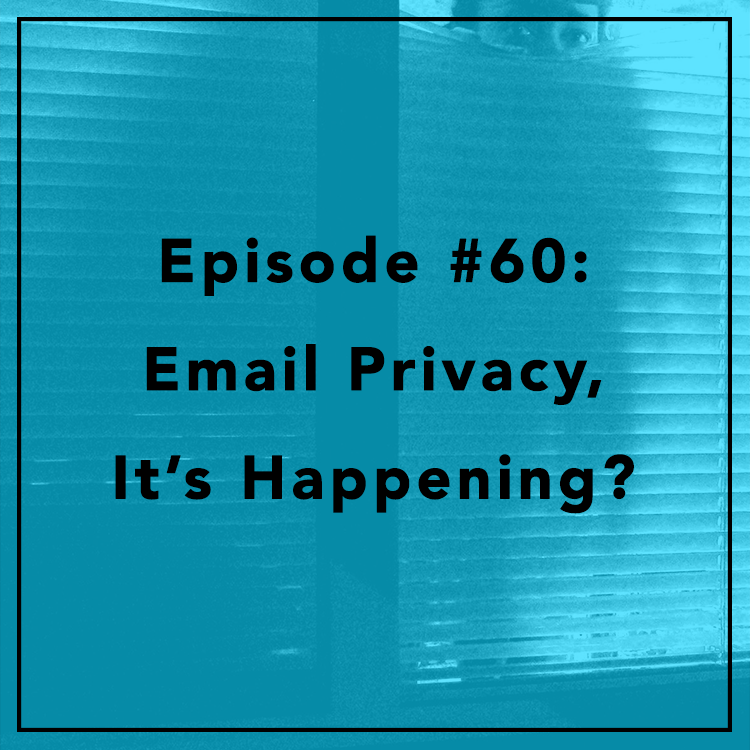
Wednesday Apr 13, 2016
#60: Email Privacy, It's Happening?
Wednesday Apr 13, 2016
Wednesday Apr 13, 2016
Is email privacy finally happening? Will Congress finally protect the privacy of Americans’ emails? Will law enforcement finally be required to get a warrant before accessing the private files we store in the cloud? After six years, the House Judiciary Committee is finally marking up the Email Privacy Act — which has the support of over 70% of the House. But what will the Senate do? And what about geolocation data? Will we have to wait another six years for that? Evan and Berin discuss.
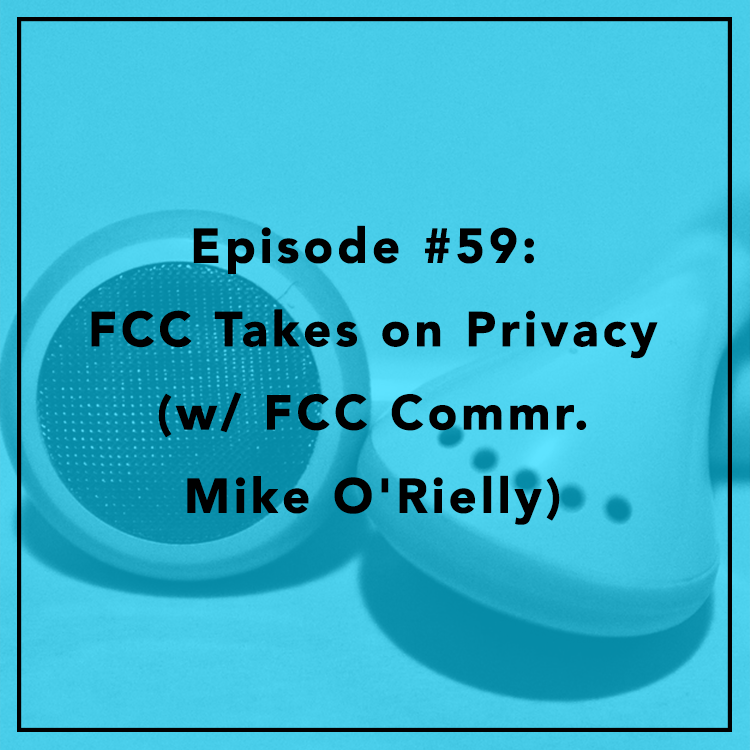
Tuesday Apr 12, 2016
#59: FCC Takes on Privacy (w/ FCC Commr. Mike O'Rielly)
Tuesday Apr 12, 2016
Tuesday Apr 12, 2016
FCC Commissioner Mike O’Rielly joins the show to discuss the Commission’s foray into privacy. What exactly does the FCC have to do with Internet privacy? Nothing — until recently. Before the agency reclassified broadband under telephone-style regulation in the name of “net neutrality,” the privacy practices of Internet service providers (ISPs) were regulated by the Federal Trade Commission — not the FCC. But, as former FTC Commissioner Joshua Wright noted, the FCC’s Title II reclassification of broadband as a “common carrier” service stole the FTC’s “jurisdictional lunch money.” What does this mean for consumers’ privacy and Internet advertising?
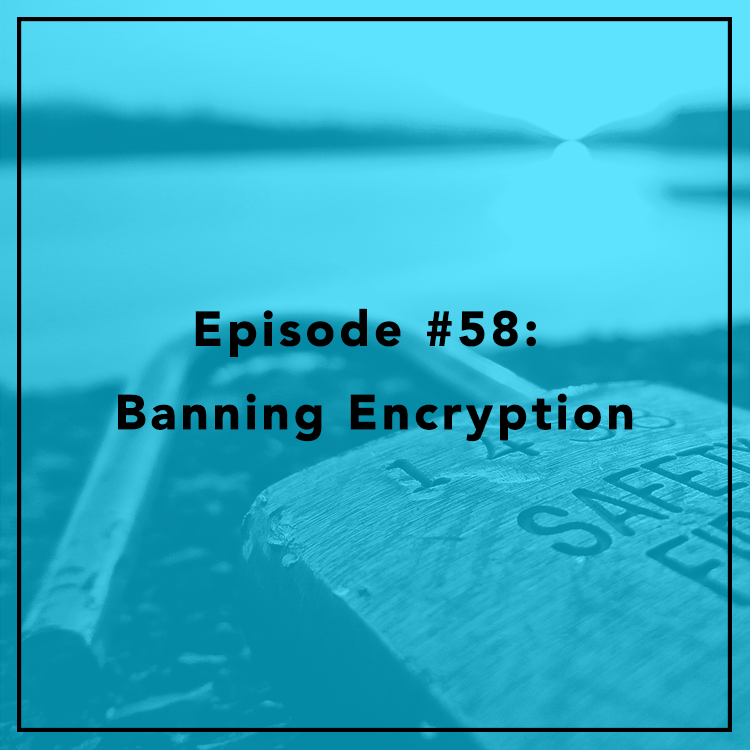
Monday Apr 11, 2016
#58: Banning Encryption
Monday Apr 11, 2016
Monday Apr 11, 2016
Last week, a pair of Senators introduced a bill that was overwhelmingly described by technology experts as “ludicrous, dangerous, and technically illiterate.” That’s because critics say the bill would effectively ban end-to-end encryption, a basic practice of digital security that protects privacy and cybersecurity but can also be used by terrorists and criminals to avoid detection. The “Compliance with Court Orders Act of 2016” would mandate that a company like WhatsApp, with other a billion users, be able to produce the plaintext of any message sent over its platform. Is this even technically possible? What would happen to companies that refuse to comply? Joining Evan to sort out the details is Julian Sanchez, Senior Fellow at the Cato Institute.
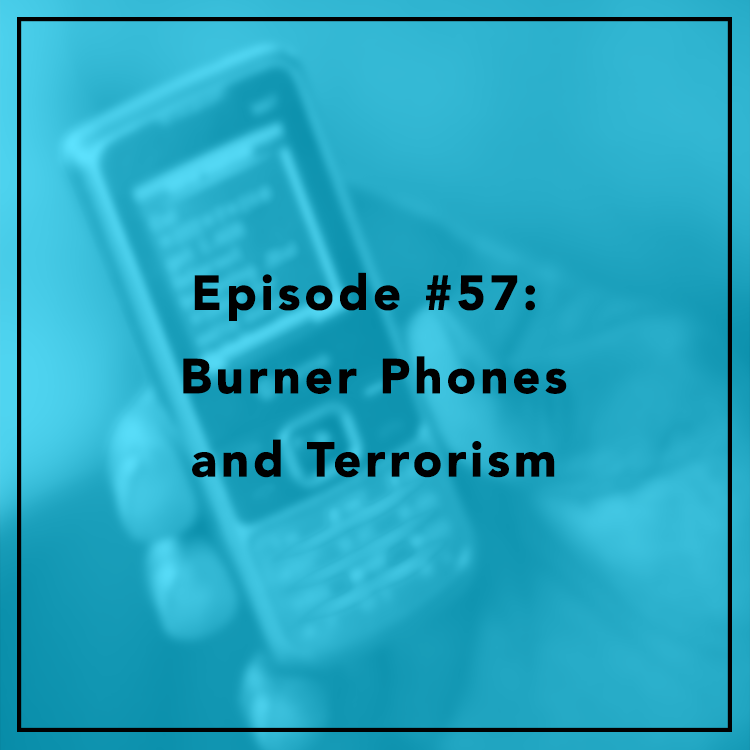
Friday Apr 08, 2016
#57: Burner Phones and Terrorism
Friday Apr 08, 2016
Friday Apr 08, 2016
Pre-paid “burner” phones are often associated with the illegal world, whether it’s drug dealing, organized crime, or even terrorism. But for most consumers, they offer legitimate benefits, including privacy protections and an alternative to lengthy phone contracts. In the wake of the Brussels attacks, some lawmakers are turning their sights on burner phones. Congresswoman Jackie Speier (D-CA) recently introduced a bill that would require consumers to present government-issued ID to buy these phones. Is this a legitimate counter-terrorism effort? Or knee-jerk scapegoating of technology? What does an ID requirement mean for social justice? Evan discusses the bill and its implications with Morgan Wright, a cybersecurity expert.
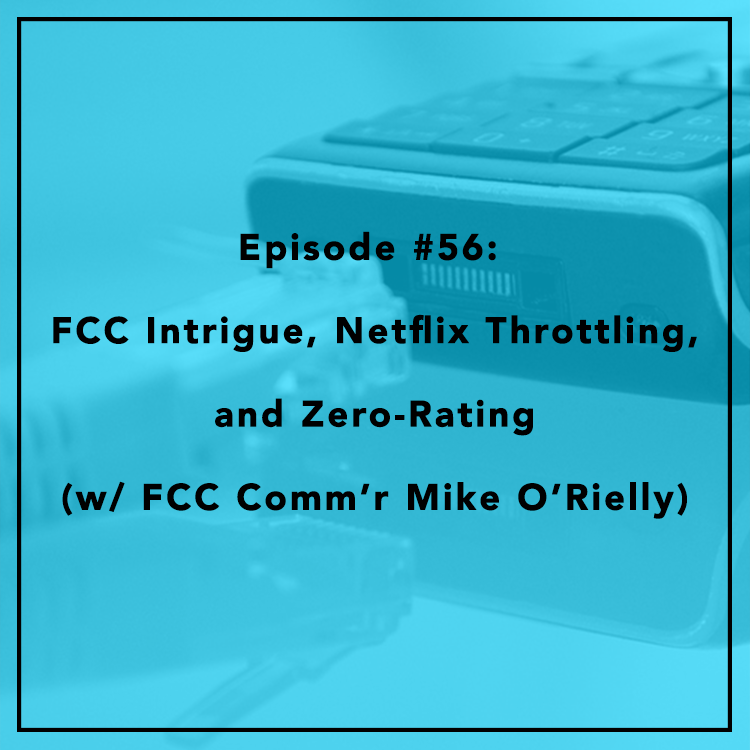
Thursday Apr 07, 2016
#56: FCC Intrigue, Netflix Throttling, and Zero-Rating (w/ FCC Comm’r Mike O’Rielly)
Thursday Apr 07, 2016
Thursday Apr 07, 2016
What’s the FCC been up to lately? Short answer: a lot. Luckily for us, a special guest, FCC Commissioner Mike O’Rielly, made time to join the show to discuss broadband subsidies, Netflix throttling, and the agency’s “inquiry” into zero-rating programs. Why did the FCC’s monthly meeting get delayed for several hours last week? Why isn’t the Commission looking into Neflix’s throttling of AT&T and Verizon customers’ video streams? What’s going on with the FCC’s investigation of T-Mobile’s Binge On and other zero-rating programs? All that and more on today’s show.
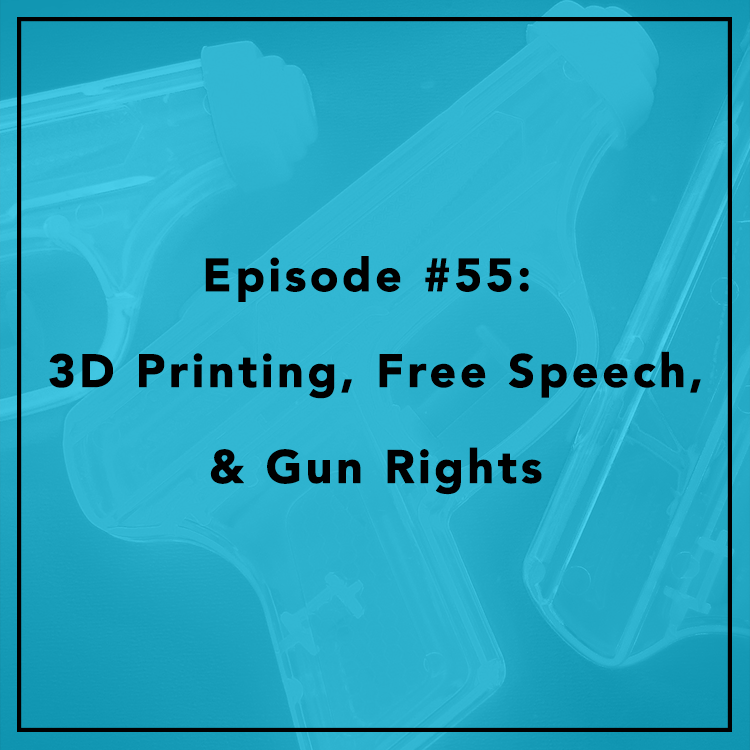
Wednesday Apr 06, 2016
#55: 3D Printing, Free Speech, and Gun Rights
Wednesday Apr 06, 2016
Wednesday Apr 06, 2016
3D printing is revolutionizing manufacturing, but not without controversy. The technology has made printing guns in your home relatively easy and cheap using open-source code provided by organizations like Defense Distributed. The nonprofit came under fire from the State Department, which alleged that disseminating code to print 3D guns is akin to international arms trafficking. Evan is joined by Randal Meyer, a legal associate at the Cato Institute, which filed a brief in Defense Distributed v. U.S. Dep’t of State. They discuss the case and its implications for free speech, gun rights, and our economy. Is computer code always free speech? Is there a legitimate public interest in banning citizens from printing their own guns? See Cato’s brief here.

